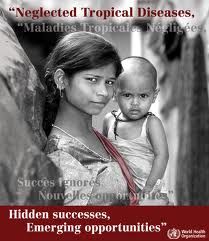“Punting the Pundits” is an Open Thread. It is a selection of editorials and opinions from around the news medium and the internet blogs. The intent is to provide a forum for your reactions and opinions, not just to the opinions presented, but to what ever you find important.
Thanks to ek hornbeck, click on the link and you can access all the past “Punting the Pundits”.
The Sunday Talking Heads:
This Week with Christiane Amanpour: Christiane Amanpour has an exclusive interview with Israeli Defense Minister Ehud Barak. Former Speaker of the House Newt Gingrich and former Governor of Minnesota Tim Pawlenty, both contending for the Republican Presidential nomination in 2012, will discuss the Egyptian Revolution.
The roundtable guest, also discussing events in Egypt, are Robert Kagan of the Brookings Institution, Arianna Huffington of The Huffington Post, Egyptian journalist Mona Eltahawy, and ABC News’ George Will.
Face the Nation with Bob Schieffer: Mr. Scheiffer’s scheduled guests are Sen. John McCain (R-AZ), Egyptian Nobel Laureate Mohamed ElBaradei, Egyptian Nobel Laureate and Activist Ahmed Zewail and Egyptian Ambassador to the U.S.
Sameh Shoukry
Editor’s note: As per Think Progress, Senate Majority Leader Harry Reid (D-NV) was originally scheduled
The Chris Matthews Show: This week’s guests are Gloria Borger, CNN Senior Political Analyst, John Heilemann, New York Magazine National Political Correspondent, David Ignatius, The Washington Post Columnist, and Anne Kornblut, The Washington Post White House Correspondent.
The questions they will ponder are:
How Did President Obama Handle The Crisis In Egypt?
Can Jeb Bush Be Convinced He’s The GOP’s Best Bet in 2012?
Meet the Press with David Gregory: This week will feature an exclusive interview with Speaker of the House John Boehner (R-OH).
Also guests Former Ambassador to Israel Martin Indyk and former Middle East Correspondent Robin Wright will discuss Egyptian events.
The roundtable guests are mayor of Atlanta, Kasim Reed (D), freshman member of congress supported by the Tea Party, Rep. Bobby Schilling (R-IL), former Clinton White House press secretary, Dee Dee Myers, columnist for the New York Times, David Brooks, and Time Magazine’s Mark Halperin.
State of the Union with Candy Crowley: Edward S. Walker, the former U.S. Ambassador to Egypt, and John Negroponte, the former U.S. Ambassador to the United Nations, join us for the third straight week to assess the last 19 days in Egypt and the days to come in the Middle East.
And South Carolina Sen. Lindsey Graham will join us for a discussion about what the Egyptian revolution means for American foreign policy.
Finally, Jacob Lew, the director of the Office of Management and Budget and author of President Obama’s 2012 federal budget proposal, will join us exclusively on Sunday. He says “the easy cuts are behind us,” but will the Obama administration make enough hard cuts to satisfy a more fiscally conservative populace?
Fareed Zakaris: GPS: : A live special edition with the latest from the revolution in Egypt. The scenes from Tahrir Square and elsewhere around Egypt have captivated the world. The sense of joy and elation is breathtaking. But, the question is, what’s next? The road ahead to democracy is a long one.
Where do Egypt and the opposition movement go from here?
And the big question is: will the Egyptian military, an organization that has enjoyed over 50 years of essentially running the country, really hand over power now to a democratic Egypt? A GPS panel with Richard Haass and Steven Cook from the Council on Foreign Relations dig deeper into that question.
Also, the financial crisis destroyed the reputations of many banks and bankers. One baker who came out of the crisis with his reputation intact was JP Morgan Chase CEO Jamie Dimon. Hear what he has to say about what caused the crisis and who made it worse. Could it have been YOU?



 On this day in 1633, Italian philosopher, astronomer and mathematician
On this day in 1633, Italian philosopher, astronomer and mathematician  This is a series of diaries focused on the
This is a series of diaries focused on the
Recent Comments